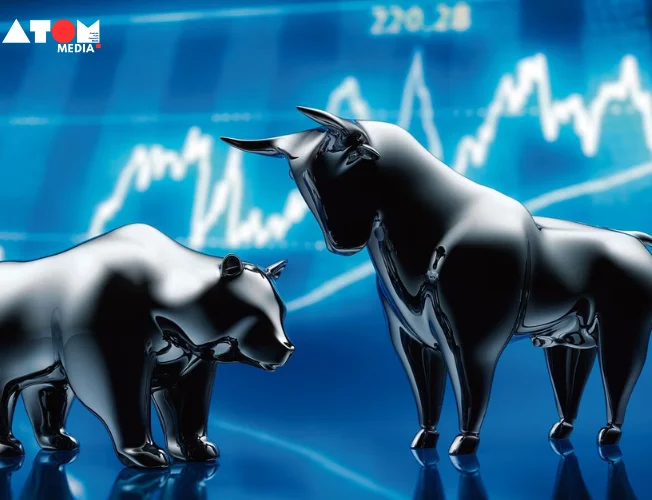As India approaches the crucial 2024 Lok Sabha elections, Prime Minister Narendra Modi has made a bold prediction regarding the stock market’s performance. Modi suggested that the stock market could see unprecedented activity and potentially break records in the week of the election outcome. This statement, made during a recent interview with a news channel, comes amidst growing anticipation and speculation about the electoral results and their impact on the financial markets.
Historical Performance of the Stock Market During Elections
Historically, the Indian stock market has shown a tendency to react positively to election outcomes, primarily due to the resolution of political uncertainty. The performance of the BSE Sensex during previous Lok Sabha elections provides a valuable context for understanding potential market movements this year.
Lok Sabha Elections 2019
In the 2019 Lok Sabha elections, held from April 11 to May 19, the BJP secured a decisive victory, winning 303 seats. The election results were declared on May 23. On the results day, the Sensex experienced a minor decline of 0.76 percent. However, this dip was short-lived, as the market surged by 1.61 percent the following day, May 24. Over the next few sessions, the Sensex continued its upward trajectory, gaining 0.63 percent on May 27 and an additional 0.17 percent on May 28. Overall, the BSE barometer climbed 3.75 percent in four of the five sessions post-election results.
Lok Sabha Elections 2014
The 2014 elections, marked by a significant “Modi wave,” saw the BJP winning 282 seats. The elections were held in nine phases from April 7 to May 12, with results announced on May 16. Anticipation of a BJP victory fueled market optimism even before the election results were declared. On May 12, the Sensex soared by 2.42 percent, followed by a 1.36 percent increase on May 13. On the day of the election results, the Sensex rose by 0.38 percent, continuing with positive gains of 0.90 percent, 1 percent, and 0.06 percent in the subsequent sessions. This preemptive rally underscored the market’s confidence in a stable, pro-business government under Modi’s leadership.
Lok Sabha Elections 2009
During the 2009 general elections, the UPA II government was formed, bringing clarity to the political landscape. The elections were held in five phases between April 16 and May 13, with results declared on May 16. The Sensex responded positively, gaining 0.75 percent on election day, 1.44 percent on May 17, and an impressive 3.75 percent on May 20. This surge highlighted the market’s relief over political stability and continuity.
Market Expectations for 2024 Elections
Prime Minister Modi’s assertion about a potential market rally post-election aligns with historical trends. His tenure has seen the BSE Sensex climb from around 25,000 points to 75,000 points, showcasing significant growth. Various opinion polls have suggested that the BJP-led alliance could secure between 370 to 410 seats, although market fears estimate the count might be between 300 to 310 seats. The BJP has ambitiously set a target of 400 seats.
Financial experts echo Modi’s optimism, with V K Vijayakumar of Geojit Financial Services noting that markets are likely to move ahead in anticipation of the election results, which are expected to be in favor of the BJP. This sentiment is backed by historical data, which shows that markets often react positively to election outcomes that promise political stability.
Analyst Insights and Market Sentiments
Market analysts and financial advisors are closely monitoring the election developments. ICICIdirect noted that the Nifty index has historically corrected by 6 percent during the polling phase in the past four elections, often hitting new highs around the election outcome. Nomura India has indicated that if opinion polls proving accurate, the BJP retaining power would calm investor nerves, ensure policy continuity, and support macroeconomic stability.
Equichain Wealth Advisors emphasized that market movements in the coming weeks will be driven by news and sentiment related to the general election results, exit polls, and the winning margin of the BJP/NDA. Their strategy involves maintaining a balanced approach with a 75 to 80 percent market exposure while keeping an optimistic view on the market.
Anticipation and Market Dynamics
As India heads into the final phases of the 2024 Lok Sabha elections, the financial markets are poised for significant activity. Prime Minister Modi’s prediction of a record-breaking stock market performance underscores the strong link between political stability and market confidence. Historical trends suggest that a clear electoral outcome, particularly one favoring the BJP, could spur a market rally, alleviating investor concerns and fostering a conducive environment for economic growth.
Investors and market participants will be closely watching the election results, anticipating a continuation of the bullish trends observed in previous election cycles. The ability of the BJP to secure a substantial mandate will likely play a crucial role in shaping market dynamics and investor sentiment in the weeks to come.
Read more: Marketing News, Advertising News, PR and Finance News, Digital News





